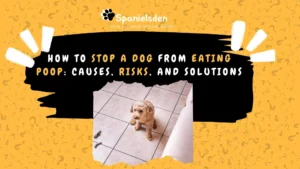The Enigma of Dog Tail Chewing
Dogs may chew their tails for reasons ranging from grooming to stress, discomfort, or deeper health issues. While occasional nibbling is normal, frequent chewing signals something amiss. A dog’s tail reflects their physical and mental well-being.
By spotting this troublesome behavior early and addressing it, you can help your pup feel comfortable and happy again. Let’s explore the potential causes and how to solve them. Your dog’s tail has a story, don’t miss it!
Table of Contents
ToggleThe Reasons Your Dog Is Biting Their Tail
If you’ve noticed your dog constantly biting or licking their tail, you’re not alone. Dog tail chewing can happen for a variety of reasons, and figuring out the cause can feel like solving a mystery.
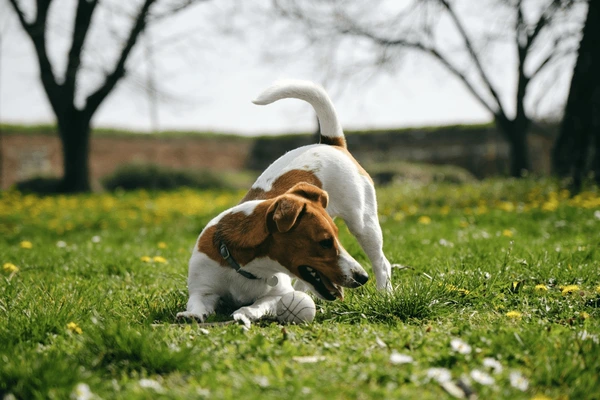
Let’s break it down and explore the possible factors behind this behavior.
1.Boredom or Behavioral Issues
Sometimes, it’s as simple as your dog being bored. Without enough mental or physical stimulation, dogs can develop repetitive behaviors like incessant chewing.

It’s their way of coping with a lack of activity or even stress. Anxiety is another common trigger, chewing their tail might be your pup’s coping mechanism for dealing with uncomfortable emotions.
2.Fleas and Ticks
Let’s face it, fleas and ticks are more than just annoying; they’re downright uncomfortable for your dog. These little parasites love to hang out at the base of the tail, causing itchiness, irritation, and sometimes even excessive chewing.
If your dog has flea allergies, it can make the situation worse, leading to hair loss and red, irritated skin. The good news? Regular flea and tick medications can keep these pests away and help your dog feel a whole lot better.
3.Intestinal Parasites
Sometimes, tail biting isn’t about what’s on the outside but what’s happening inside.
Intestinal parasites like tapeworms and roundworms can cause serious discomfort, especially around the rectum. Dogs often get these pests from eating an infected flea or raw meat.
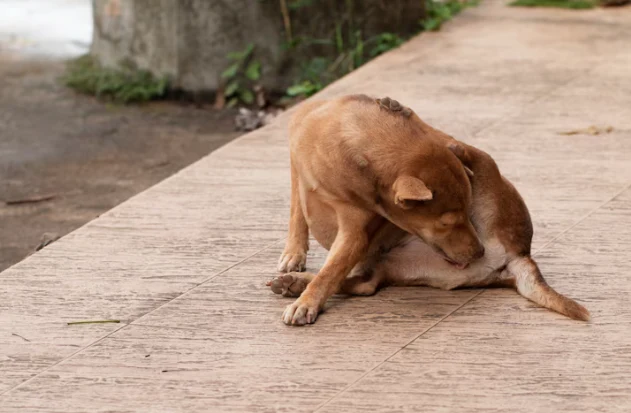
You might notice your pup constantly licking or chewing to find relief. The fix? A quick trip to your vet or local pet shop for medications to clear things up.
4.Allergies and Environmental Factors
Dogs can develop allergies to certain foods, environmental factors like pollen, or even substances they come into contact with, such as shampoos or cleaning products.
Allergic reactions often cause discomfort and dermatological issues, like dry skin, dermatitis, or other infections.
5.Complex Health Issues
Sometimes, tail chewing points to deeper problems, like physical pain or an injury. Conditions like an anal gland issue can make the tail area feel so uncomfortable that your dog resorts to biting.

Other complex health issues, including dermatological problems or even joint pain, can also be the culprit.
6.Infections or Skin Conditions
Infections or dermatological issues like dry skin and dermatitis can lead to tail biting as your dog tries to relieve the irritation.
These issues often result in redness, swelling, or even open wounds, making the situation worse.
By understanding these possible causes, you can better address your dog’s needs. Keep in mind that tail chewing can range from a minor nuisance to a symptom of something more serious.
If the chewing persists, don’t hesitate to consult your vet. Your dog’s comfort is worth it!
7.Anxiety
Sometimes, tail biting isn’t about a physical problem at all. Anxious dogs often develop habits like overgrooming or destructive behavior to cope with their stress.

If your dog seems more nervous than usual and is biting their tail, it might be time to consider calming activities, more playtime, or even consulting your vet for advice.
Effective Solutions for Dog Tail Chewing
Now that we’ve explored the possible causes of dog tail chewing, let’s talk about what you can do to help your furry friend find relief.

The good news is that many of these issues are treatable with a bit of care and attention.
1. Parasite Control
If fleas, ticks, or mites are causing your dog’s discomfort, start with regular flea control and tick treatments.
Your vet might recommend a chewable medication, a topical treatment, or even a collar. These solutions help keep pests at bay and reduce irritation.
2. Addressing Allergies
For allergies, identifying the trigger is key. Whether it’s certain foods, environmental factors, or substances like shampoos, work with your vet to pinpoint the allergen.
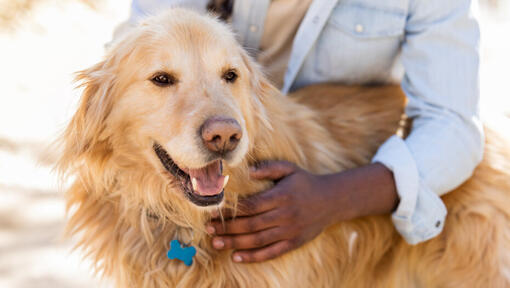
Options like antihistamines, special diets, or allergy medication can bring much-needed relief.
3. Skincare Solutions
For dogs with dermatological issues like dry skin or dermatitis, grooming and moisturizing with dog-safe lotions can work wonders.
In cases of infections, your vet might prescribe medicated shampoos or creams to heal the skin and stop the itching.
4. Mental and Physical Stimulation
If boredom or anxiety is the root cause, make sure your dog gets plenty of physical exercise and mental stimulation. Regular walks, interactive toys, and enrichment activities can keep your pup’s mind busy.
For more anxious dogs, calming techniques like dog-friendly products or calming jackets might help.
5. Pain Management
If the issue is linked to physical pain, such as an anal gland issue or a tail injury, you’ll need to address the root issue with your vet.
Treatments might include pain relief medications, manual expression of the glands, or specific care for injuries.
6. Routine Check-Ups
Sometimes, the solution is simply staying proactive. Regular visits to your vet ensure that issues like parasites, allergies, or infections are caught and treated early before they escalate.
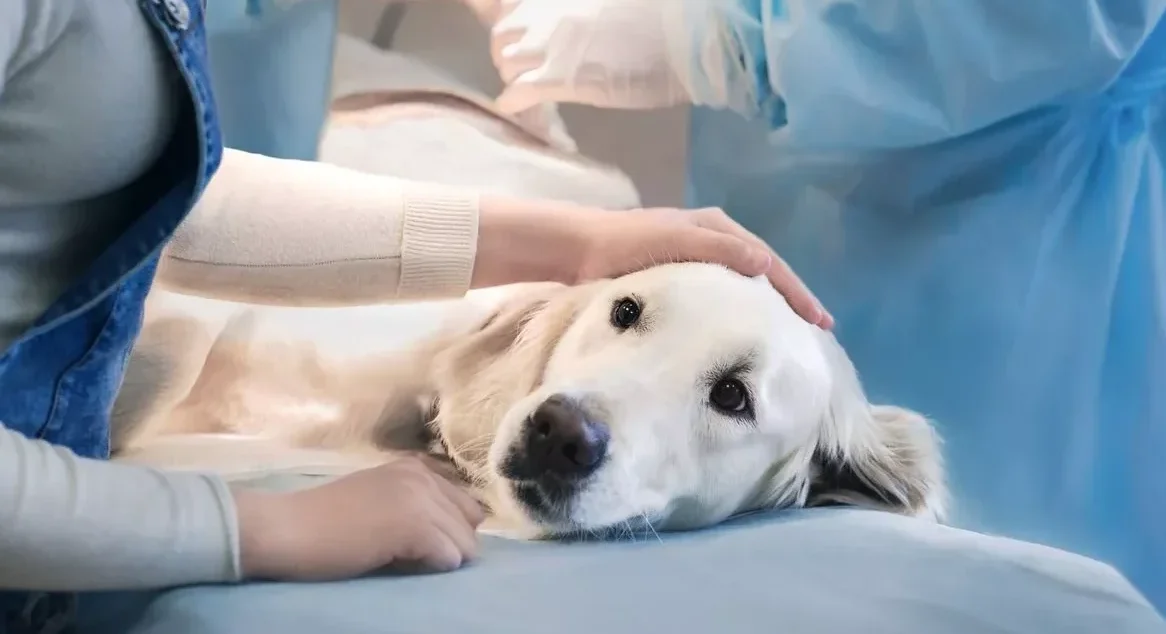
Remember, your dog is counting on you to be their advocate. By tackling the causes and implementing these solutions, you’ll have your pup back to wagging their tail happily in no time!
Click here to read about: Tail Docking In Dogs is it harmful or not.
When Should You Take Your Dog to the Vet for an Itchy Butt?
Let’s be honest, dealing with an itchy butt isn’t fun for you or your dog. While a little scratching here and there is normal, sometimes it’s a sign of something more serious.

So, when should you stop wondering and head to the vet?
- If the itching persists for more than 24 hours, it’s worth checking out.
- Notice your dog obsessively licking or scooting across the floor? That’s a red flag.
- Signs like irritation, bleeding, or a funky malodor coming from their rear are definitely cause for concern.
- If your pup seems off, maybe they’re unusually lethargic or showing other abnormalities—it’s time to take action.
Doctors recommend keeping an eye out for related issues like fleas, ticks, or allergies, as these can often be the culprits. If you’re feeling worried, don’t hesitate to make a visit to your vet.
A quick checkup can give you peace of mind and help your dog feel like their happy self again.
How Will Your Vet Treat Your Dog’s Itchy Butt?
If you’ve taken your dog to the vet for their itchy butt, you’re probably wondering, “What happens next?” Don’t worry, your vet has a plan to get to the bottom of the problem (pun intended!).
Step 1: Figuring Out the Cause
The vet will start by doing a few checks to determine the cause of your dog’s discomfort. This might include:
- A rectal exam to look for things like full or infected anal glands. If necessary, they’ll do an anal gland expression, which can sometimes fix the issue right away.
- A skin exam to check for irritation or skin infections.
- A fecal parasite screening to rule out parasites like tapeworms or roundworms.
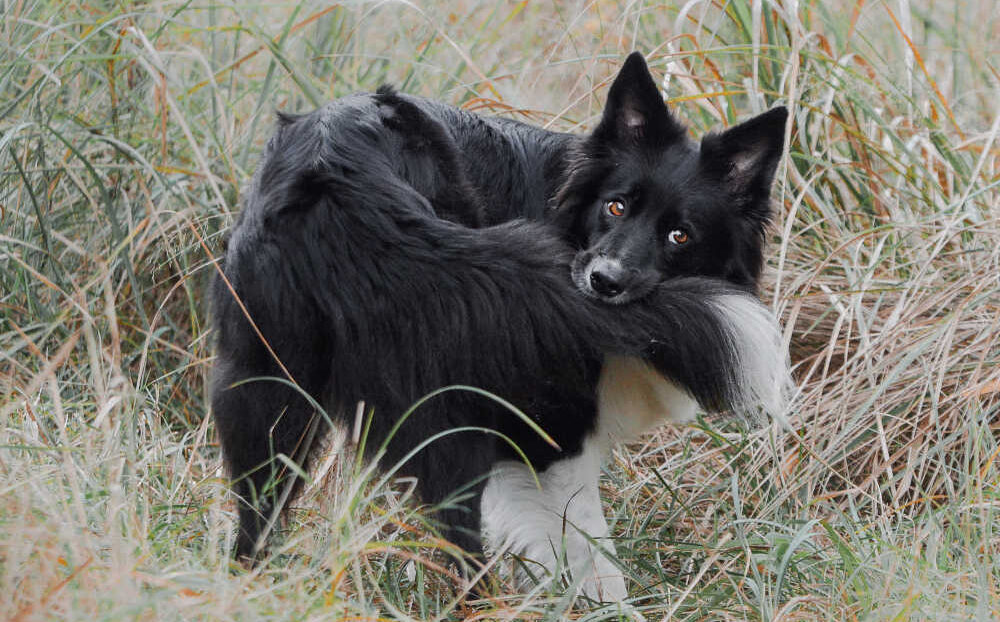
Step 2: Creating a Treatment Plan
Once they know what’s causing the problem, your vet will tailor a treatment plan for your pup:
- Anal gland issues? The vet might empty the glands and prescribe antibiotics if there’s an infection.
- Parasites? A dose of anti-parasitic medication will take care of those pesky invaders.
- Skin infections? Your vet may clean the area and provide anti-itch medications or steroids to calm any inflammation.
- Allergies? They’ll likely suggest steroids, anti-itch treatments, or dietary changes to eliminate allergens.
- For more serious conditions, like perianal fistulas or recurring problems, the vet might recommend surgery or long-term care.
- If it’s a foreign object, they’ll carefully remove it to bring relief.
Step 3: Managing Anxiety or Stress
If your dog’s tail-chewing is tied to anxiety, the vet might suggest anti-anxiety medications, calming products, or even behavior modification techniques to help them relax.
The Bottom Line
Whatever the issue, your vet is there to make sure your dog feels better fast. Even if it’s just a temporary itch, don’t ignore it, sometimes these small signs can point to something more serious.
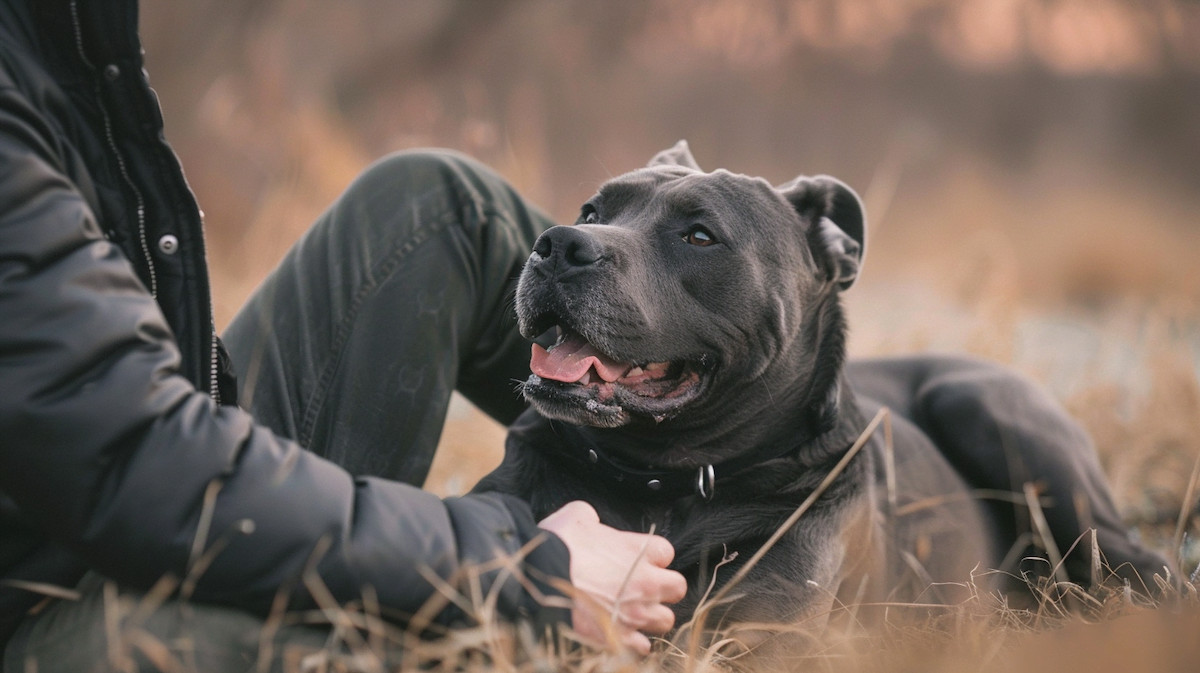
Trust the process, and soon your pup will be back to wagging their tail happily.
Conclusion
Tail chasing or biting can seem amusing, but it’s important to recognize when it points to medical or behavioral issues. The good news? These problems are usually treatable with the right care.
Whether it’s a vet visit or help from a trainer, addressing the root cause ensures your pup’s health and happiness. Your dog’s wagging tail should be a sign of joy, not discomfort—don’t miss the signs!





